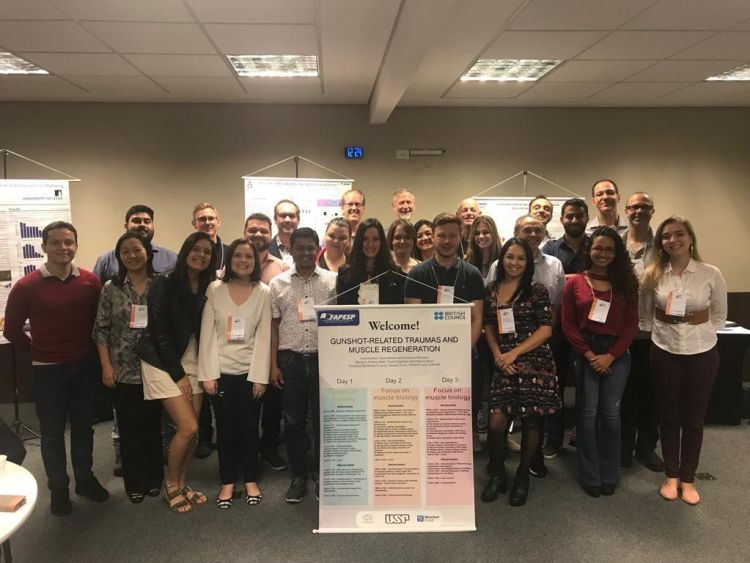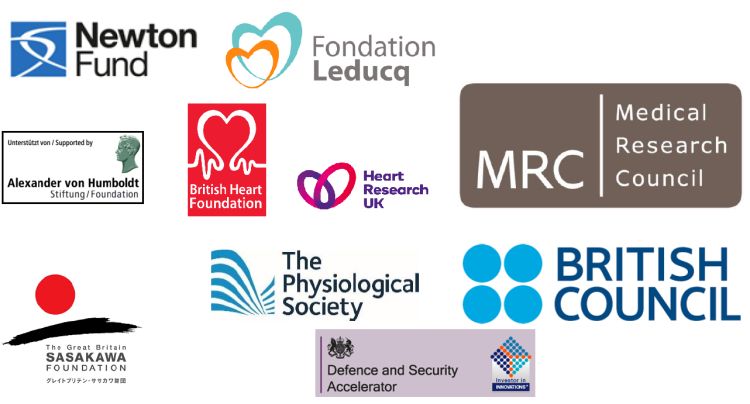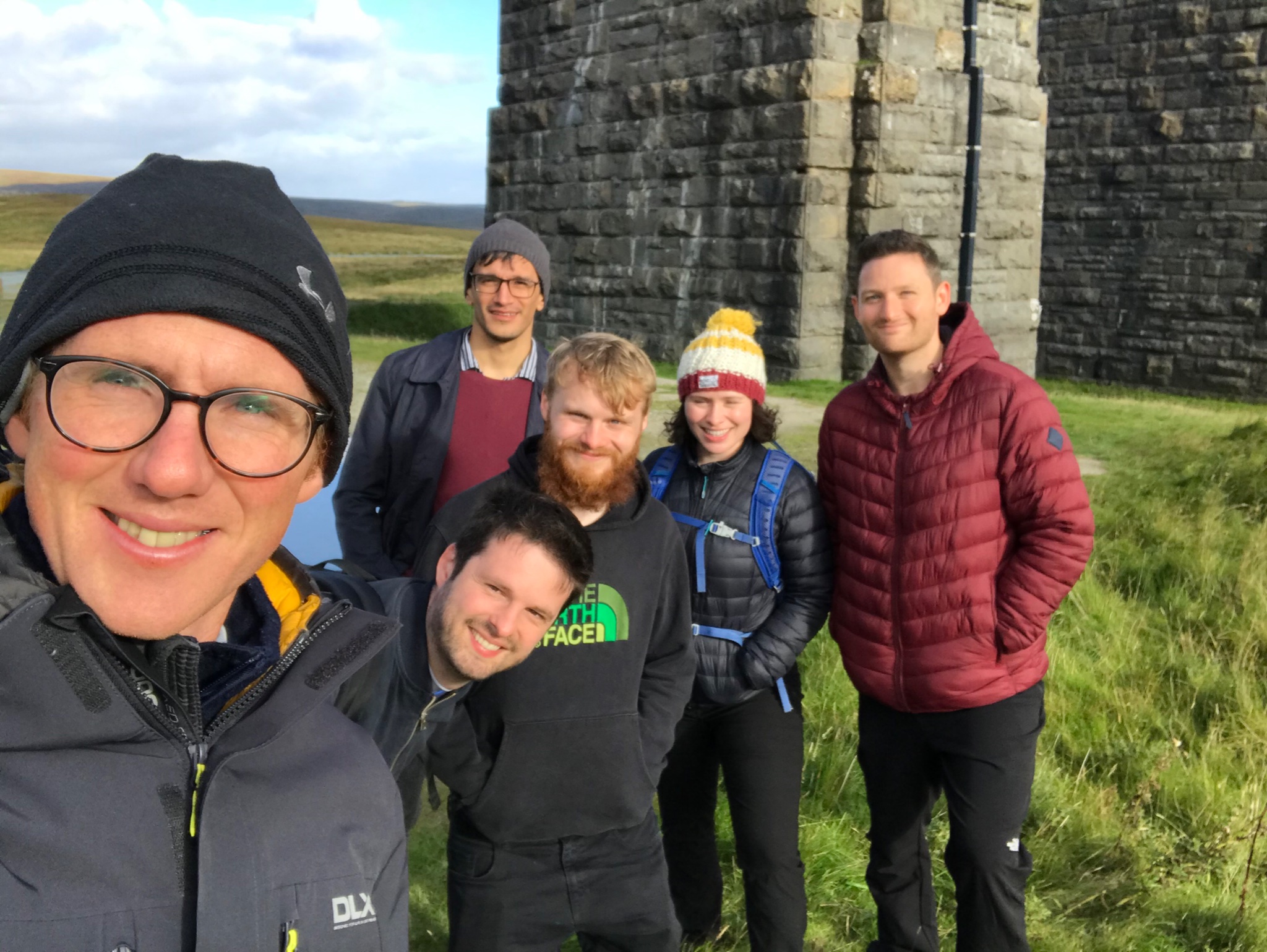
Dr Scott Bowen
- Position: Associate Professor
- Email: T.S.Bowen@leeds.ac.uk
- Phone: +44(0)113 343 3834
- Location: 5.55g Garstang
- Website: X
Profile
Associate Editor - Journal of Cachexia, Sarcopenia, and Muscle
Committee – European Association of Preventive Cardiology (Secondary Prevention and Rehabilitation)
My research interest is muscle biology, with a key focus on the mechanisms of skeletal muscle wasting and weakness in health and disease. The main research aim of the lab is to better understand and find optimal treatments for skeletal muscle disorders, while the academic aim is to train young scientists to a high level and prepare them for a career in the scientific field.
My research training included working at the Institue of Systems and Membrane Biology at the University of Leeds (UK), Department of Cardiology at Leipzig Heart Center (Germany), Department of Circulation and Medical Imaging at the Norwegian University of Science and Technology (Norway), and Applied Physiology Laboratory at Kobe University (Japan). I started as an independent investigator in the School of Biomedical Sciences at the University of Leeds in 2017 and was awarded an MRC NIRG in 2019.
Research funding includes support from the Medical Research Council (MRC), Heart Research UK (HRUK), British Heart Foundation (BHF), National Institute of Academic Anaesthesia (NIAA), Ministry of Defence (DASA), Alexander von Humboldt Foundation, Leducq Foundation, and the British Council.
Research interests
Mechanisms of muscle weakness and wasting.
Loss of muscle mass and strength occurs in many clinical conditions, and plays a critical role in pulmonary complications and disabilities observed in patients and leads to significant reductions in quality of life and survival. The aim of this laboratory is to identify key mechanisms contributing to muscle dysfunction in various diseases such as heart failure, and how this can be prevented through the development of novel therapies that include small-molecule inhibitors and exercise training. One particular area of interest is investigating why the main muscle of respiration, the diaphragm, becomes weak in acute and chronic disease.
Key research areas include:
- Molecular mediators of skeletal muscle weakness in heart failure, ageing, critical illness, and other disorders
- Pharmacological, dietary, and exercise treatments for muscle pathology
- Diaphragm weakness in clinical disease and ageing
- Impact of trauma on muscle atrophy and regeneration
International collaboration
One major aim of the lab is to develop sustainable links with international institutes and colleagues in order to aid scientific progress and cultural exchange. Current ongoing collaborations include working with Professors Volker Adams (Dresden Heart Center) and Siegfried Labeit (Heidelberg University) in Germany, Professor Anselmo Moriscot and Patricia Brum (USP) in Brazil, Professor Wataru Ogawa (Kobe University) in Japan, and Professor Junjie Xiao (Shanghai University) in China. The lab aims to foster strong links using multiple approaches, including regular student exchanges and small workshops. Examples include:
Newton Funded Researcher Links Workshop coordinated with Professor Anselmo Moriscot at the University of Sao Paolo. This UK-Brazil cooperation (supported by the Newton Fund, British Council, FAPESP, and CONFAP) brought together early career researchers to discuss the major issue of gunshot-related injuries and muscle regeneration. Future collaboration will now focus on developing better treatments for patients who suffer such traumatic injuries.

The laboratory group
One key factor allowing the lab to progress science is the involvement of excellent postgraduate researchers, which is fostered by our regular social events. Here is what the current members of the group would like you to know:
Dr Helene Dauo, PhD (2024-2025): I am a BHF postdoctoral research fellow with an interest in muscle function in health and disease. My major focus is on diaphragm myopathy in heart failure. Email: H.N.A.Daou@leeds.ac.uk
Dr Emily Storey, PhD (2023-2025): I initially worked on an MRC funded grant in the lab, before moving on to my current project on diaphragm dysfunction in sepsis (funded by the NIAA). My current interests include mechanisms of muscle dysfunction and the role of muscle stem cells. Email: E.Storey@leeds.ac.uk
Harrison Gallagher (2022-2025), MSc: I am currently completing my PhD. My project is exploring regulation of muscle mass in acute trauma and ageing, with a keen interest in muscle atrophy and regeneration. Some of my work has involved supported from DASA, part of the Ministry of Defence.
A lab day out! On top of the Yorskhire dales braving the harsh weather.
Undergraduate Projects
Undergraduate students are considered an important component to supporting the lab’s development. Undergraduates will first be commonly exposed to group and one-on-one sessions providing an introduction to the topic area. Basic lab training will then follow, allowing development of some key research skills. Thereafter students will be offered a range of projects to pursue and independently investigate, which may lead to a published manuscript and co-authorship.
Positions
The lab is always interested in recruiting highly motivated and enthusiastic researchers, ranging from postdoctoral to PhD to MSc level. Opportunities may be available and anyone with an interest should contact Dr Bowen on t.s.bowen@leeds.ac.uk.
Funding and support
The laboratory would like to thank the following for their generous support:

<h4>Research projects</h4> <p>Some research projects I'm currently working on, or have worked on, will be listed below. Our list of all <a href="https://biologicalsciences.leeds.ac.uk/dir/research-projects">research projects</a> allows you to view and search the full list of projects in the faculty.</p>
Primary investigator (PI)
Co-investigator (Co-I)
Qualifications
- BSc (University of Leeds), MSc (Loughborough University), PhD (University of Leeds) 2008-2012, Postdoctoral Research Fellow (Heart Center Leipzig) 2013-2017
Professional memberships
- American Physiological Society
- Physiological Society UK
- European Society of Cardiology (EAPC)
Student education
I have previously taught on a range of subjects including; exercise prescription, physical activity, health and exercise prescription and muscle function and adaptation. I currently teach subjects in physiology of exercise testing, exercise bioenergetic, exercise prescription, physical activity and professional and practical skills in research.
Research groups and institutes
- Cardiovascular and Exercise Sciences
- Sport and Exercise Sciences
Projects
-
<li><a href="//phd.leeds.ac.uk/project/2444-computational-modelling-to-aid-signal-deconvolution-in-near-infrared-spectroscopy-">Computational modelling to aid signal deconvolution in near-infrared spectroscopy </a></li>
<li><a href="//phd.leeds.ac.uk/project/1356-licamm-brown-adipose-tissue-derived-small-molecule-interorgan-signalling-in-cardiometabolic-disease">LICAMM Brown adipose tissue-derived small molecule interorgan signalling in cardiometabolic disease</a></li>


